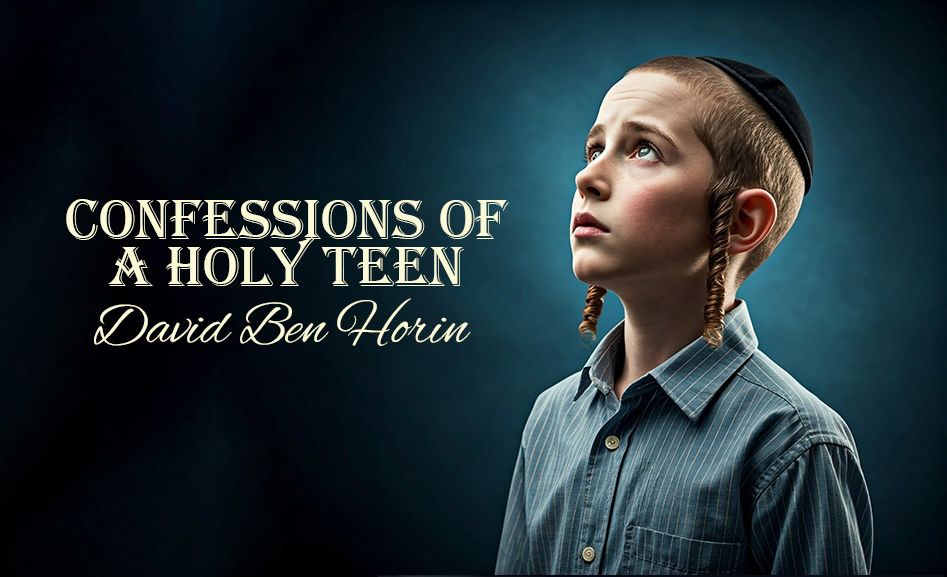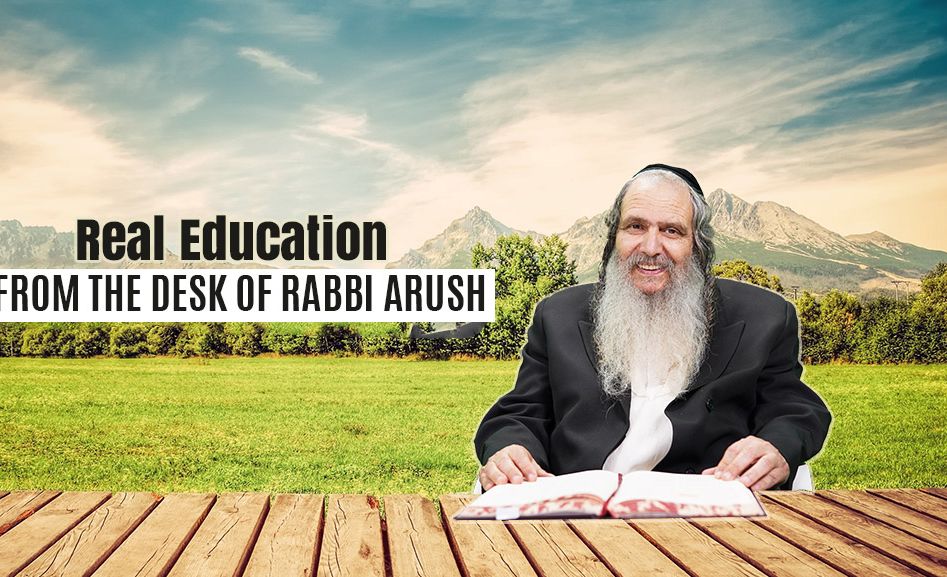
Teaching Joy and Gratitude
A couple once asked me for advice on child rearing. I told them to serve G-d with joy. Taken aback, they asked, "What does that have to do with child rearing?"

You often hear me speaking about gratitude and you often hear me speaking about child education. And, I frequently speak about joy also. Let’s combine the three topics because gratitude and joy are vital elements in child education, and particularly in parental role-modeling for children.
A couple once asked me for advice on child rearing. I told them to serve G-d with joy. Taken aback, they asked, “What does that have to do with child rearing?”
I answered, “If you serve Hashem without joy, you might remain ‘religious’ – but that’s not sure. Your children will likely stray from the path if you try to raise them in a Judaism that lacks joy.”
A necessary component in child rearing is simple happiness. Parents must strive to instill in children the feeling of joy and thanksgiving for every aspect of their life as Jews. If the parents don’t serve Hashem with joy  and gratitude, then they certainly can’t teach their children to do so.
and gratitude, then they certainly can’t teach their children to do so.
Joy isn’t obtained automatically; it’s a character trait that needs to be developed by hard work. One can’t expect to be perpetually happy without investing effort in perfecting his service of Hashem.
Some people confuse happiness with success; they think they are happy because they are succeeding at something. But that is not real joy. A person experiences true joy when he is always happy with his lot – no matter what it is, for better or for worse – and not just when things are going his way. Such a mindset is the only chance for perpetual joy in life. Our book The Garden of Wisdom provides a lengthy elaboration of this principle.
Praying to Hashem is a necessary element in strengthening one’s joy in life. We need Hashem’s help in implementing the important principles we are learning on how to be joyous always.
When a child grows up with sad and depressed parents, he readily blames Judaism as the source of the parents’ suffering. He perceives that Judaism will not bring him fulfillment in this world. After all, his parents are “religious” and also “ultra-Orthodox” and they are not happy at all. Why should he live like that? Does he deserve some sort of punishment that he must be depressed while all he wants is to be outside, in the world of false happiness and cheap thrills, where everyone seems to be partying and having a good time?
But when the parents strive to be happy always – dancing, singing and excited about every mitzvah that they do – the children will follow suit. A father’s fervent songs of praise at the Shabbat table and a mother’s glistening eyes while lighting Shabbat candles will be wonderful images that are imprinted on their children’s souls forever. They’ll see that their parents have a good life and naturally want to be like them. They’ll instinctively link happiness with the lives in which their parents thrive.
Complaining and despondent parents won’t be able to convince their child that their way of life is the right way. The child will never accept the claims of such parents, because they negate the reality that he sees with his own eyes and feels in his own heart.
A child might be small, but he understands and senses that his parents’ way of life does not bring him happiness; therefore, he is not interested in what they have to offer, especially inasmuch as his parents’ way of life makes him miserable.
If parents oppress a child in the name of the Torah or fear of Heaven, they shouldn’t be surprised if the child picks up more and more input from the streets. Eventually he’ll run away from Judaism as if it were a prison, Heaven forbid.
The stark reality is that a person who is obviously religious and obviously unhappy in effect desecrates Hashem’s Name in public. Those who see him will think to themselves if that kippah on his head was really worth what the believers claim, and if it was really such a privilege like they say, then the person wearing it should logically and consequently be full of joy.
A person with a beard, payot (sidelocks) and tzitzit (4-cornered, tasseled underclothes garment) makes the statement that he is a Torah-observant individual. When he frowns, onlookers perceive that his way of life is oppressive and not worth following.
The human brain cannot grasp the value of every single mitzvah, especially the mitzvah of emuna. We must rejoice in every little bit of spiritual endeavor as if we won the Irish lottery. Our joy in our Judaism will exert greater influence on our children than a thousand sermons. We’d be well advised to substitute admonishing our children with positive and joyous parental example. One cannot teach his children that his path is the correct one if he is sad and depressed. Joy and personal example are the keywords in passing our Judaism on to the next generation.







1/21/2020
This article is spot on!
Every child that I've seen who ends up in the streets came from a home where Judaism was a burden, a pain, or a "job to be done". No normal person would choose that kind of life – there's no vitality in that.